
Porcelain has been collected among the wealthy since the end of the 18th century. Many artists from Europa’s porcelain factories arrived in the United States, established themselves and soon had their own studios with students. One cannot say it happened overnight, but slowly the interest in porcelain decoration took root. The period during the World War I, and for a while thereafter, became a slow period. Porcelain imported had been preferred even though the porcelain factories in the U.S. made their own pieces that were known as soft porcelain. Slowly but surely ceramic painters were already involved and soon porcelain painters found their way to the more decorative traditional style.
Techniques & Materials
It is a beautiful way to paint—very forgiving because it can be wiped off and leave the white surface of the porcelain, which is intriguing and exciting. Making mistakes can easily be corrected before the first fire. The method of “paint and wipe” is common and certainly an asset. A clean cloth takes off what you don’t like, and you can do the painting over until you are satisfied and ready for the first fire.
Porcelain paint comes in powder form. It needs to be mixed with oil—mineral oil—until it is the consistency of toothpaste. It should be mixed thoroughly. This process is called grinding. The paint is placed on a tile or glass; about 8 by 8 inches works well. Then with a flat palette knife it is carefully mixed being sure not to leave any dry paint. Everything should be well mixed.
This story is from the {{IssueName}} edition of {{MagazineName}}.
Start your 7-day Magzter GOLD free trial to access thousands of curated premium stories, and 9,000+ magazines and newspapers.
Already a subscriber ? Sign In
This story is from the {{IssueName}} edition of {{MagazineName}}.
Start your 7-day Magzter GOLD free trial to access thousands of curated premium stories, and 9,000+ magazines and newspapers.
Already a subscriber? Sign In

Fresh Eyes
Anna Rose Bain discusses the passions of being an artist and helping students transform their own work
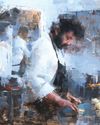
The Next Level
Jacob Dhein uses a wet-into-wet technique to create painterly depictions of a variety of subjects

Wild Spirit
Alternating between broad glazes and fine details, Claire Milligan captures the intricacies of the animal kingdom
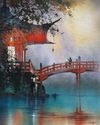
The Bridge Between
Watercolorist Thomas Wells Schaller delves into the nuances of observation and imagination
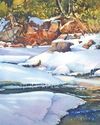
The Color Continuum
Catherine Hearding demonstrates how she utilizes color to enhance the mood of her landscapes

Points of Precision
A strong focal point and attention to detail make Nicola Jane's artwork jump off the page

BE YOURSELF
Harley Brown's fascinating things no one else will tell you
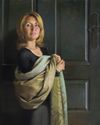
JEFFREY T. LARSON
Expertly Putting the Pieces Together

Hot-Blooded
Blending elements of realism and surrealism, figurative artist Anna Wypych’'s paintings are dominated by vivid reds
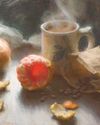
Adam Clague Incandescence
Adam Clague’s masterful understanding of contrast allows him to paint subjects that seem to glow from within